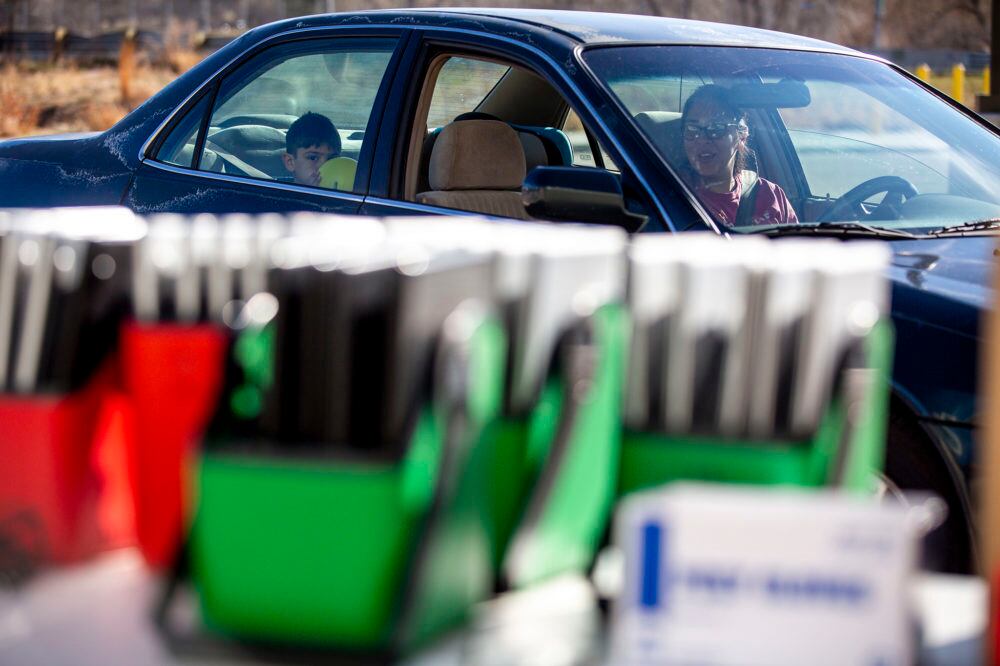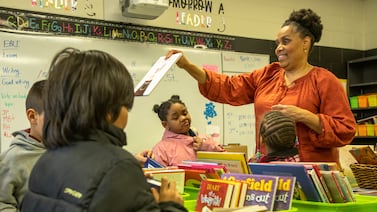When the schools closed in Denver in mid-March, we all assumed it would be for a few weeks. Instead, this has become our new normal.

It’s been a struggle. As a teacher, I’ve done all I can to reach out to my students and their families and give them whatever support I can. I’ve also been following education stories in the news.
Some of those stories have made me deeply worried for the future of our schools. It seems that some education groups see this new normal as heralding some long-awaited shift to using more technology in the classroom, and more of what I see being called personalized learning but looks like kids spending their day learning from a computer while only checking in with a teacher. I’ve even seen some float the idea of online schools as a great and important shift in education.
These ideas are not new, and have been deeply contentious in places they’ve been tried. They also seem completely disconnected from the lessons I’ve learned from working with my students and their families during this crisis.
The first lesson is that parents are not teachers. Over the past month, I’ve had more than a few conversations with tearful parents who want so badly to do right by their children, but who have neither the time nor the training in pedagogy to help their kids the way they’d like to. This problem is exponentially worse for parents of kids who struggle with motivation or behavior, and for parents of kids with learning disabilities who need specialized instruction.
Many of the parents of the kids I work with already put in long hours at work to put food on the table for their kids. They can’t also become their kids’ teachers or police their work, and they shouldn’t have to.
The second lesson is that human connections help students learn. Kids learn best when they learn from and with each other. The millions of children and teenagers driving their parents crazy as they long for interactions with people who live outside their home are just more evidence.
Effective teaching helps too, of course. And any good teacher will tell you that a critically important thing you can do to help kids learn is to build a strong and trusting relationship with them.
Kids do not work for teachers they don’t trust. They need a human teacher to ask them how their day is going, empathize with them when they’re stuck, and to get to know how they learn best, just as they need human peers to talk about their day with, play with, become friends with, and get through the struggles of growing up with. Funneling those interactions through a computer just doesn’t work for most.
The third is that the ability to plan and be self-directed (known to teachers and psychologists as executive functioning) isn’t kids’ strong suit. This is why the law doesn’t treat kids like adults. Their brains aren’t fully developed and they aren’t yet capable of fully regulating themselves. It is for this reason that school is structured and predictable.
Practiced, predictable rituals are also a key to getting engaged students. They help decrease the amount of self regulation that kids have to do and increase the amount of attention and memory they can devote to learning.
While this structure is important for all students, for some students, school is the only structure they have. The restoration of the structure and predictability of school, a thing many working parents cannot provide without giving up their employment, should be our central focus.
It’s also true that I have some students who are doing better in self-directed learning than in structured classrooms, and my teacher colleagues report the same. These students absolutely need access to the kind of learning they’re getting right now. However, these students are a small minority. We can learn to serve those students better without trading in a system that is more effective for most.
Right now, most of the parents I work with are asking me when their kids can go back to school. Their kids want to see their teachers and friends, and they need to go back to being parents rather than teachers. That’s why every article I see about how computers are the future scares me.
Relationships are the basis for the real future of education. Small class sizes where teachers can truly meet the needs of every kid are the future of education. Structure and social-emotional support are the future of education. Yes, technology is a part of the future, but it’s not an end unto itself.
Let’s listen to families and teachers during this crisis and try to learn the right lessons.
Troy Hubbell is a special education teacher in Denver.








